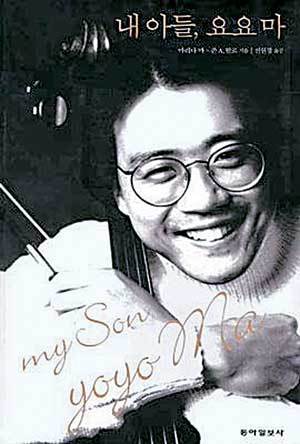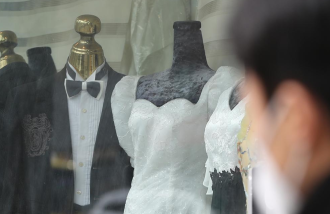Mischievous Prodigy Boy Becomes a Great Cellist
Mischievous Prodigy Boy Becomes a Great Cellist
Posted November. 07, 2003 23:12,

My Son, Yo-Yo.
Written by Marina Ma and John Rallo; Translated by Jhon Won-gyeong.
280 pages \10,000, Donga Ilbo Publishing Company.
Cellist Yo-Yo Ma, who appeared at the Concert Hall of Seoul Arts Center on November 5, gave a huge smile while looking around the packed center. With the exclamation of Wow! from the audience, loud applause flowed.
Yo-Yo Ma overwhelmed the audience even before the performance that day. The nights fever with four encore songs with standing applause must have been foretold at this moment already.
Rallo, the author of this book and an educator who studied Italian literature, has been a friend and neighbor of the Mas since Yo-Yo was 10-years old. He recollects the memories of Marina, the mother of Yo-Yo, and adds his views on the making of Cellist Yo-Yo Ma in this volume.
Yo-Yo was born as the son of Chinese music students living in Paris. He was a notoriously mischievous kid as well as a stubborn one. He started taking violin lessons after his older sister who had already been taking it. He then insisted, I want to play a bigger instrument. It was said that after he chose a bigger instrument, thinking that he could not beat his sister in playing the violin, was when he determined his lifes goal.
His family was a typical Asian one, with a strict father and a loving mother. His father Haochiuns educational methods were so stern that one might feel suffocated. He taught two measures of Bachs unaccompanied cello suites collection every day to young Yo-Yo. He later arranged Michel Lepaint to teach the boy thinking, He needs a better teacher. The new teacher frowned saying, He has taught too difficult a music to this little boy. However, he realized that it was a right thing to do after hearing the little boy play.
While his father was a stern educator, his mother always provided him with tender and loving encouragement. After visiting Pablo Casals in his practice room, the mother used to remind her son of the rocky floor of the room: Didnt you see? Simple notes played by a performer, one by one of them, are all products of painful efforts. They were all traces of the pin (that sticks the body of cello onto the floor).
However, the playful Yo-Yo always was too busy playing and didnt spend enough time practicing. Even being the renowned artist today, he is still not without adolescent distress. He skipped rehearsals and deserted his cello to play around. One day, he skipped a final rehearsal of a youth orchestra. The news that he had to go through a stomach cleansing after getting totally drunk came as a thunder bolt to his strict and upright parents. Instead of scolding, the father corrected the cello prodigys misbehavior with one remark, I will not drink from this moment on.
The author does not fail to mention the wellspring of Mas ability to overwhelm the audience with his warm smile which melts away the audiences. He explains that it is owing to his innate sense of humor, generosity, warmth, and his unending willingness to breathe as one with the audience.
The author has done a private interview with Yo-Yo Ma in 1995 and has included Mas personal attributes from the authors own experiences, performance style, and recommended albums at the end of the book.
Yoon-Jong Yoo gustav@donga.com



![[오늘의 운세/05월 29일]](https://dimg.donga.com/c/138/175/90/1/wps/NEWS/IMAGE/2025/05/29/131706593.1.jpg)

![[속보]이준석 “이재명 장남 글 인용한 것…지탄받을 사람 누구냐”](https://dimg.donga.com/c/138/175/90/1/wps/NEWS/IMAGE/2025/05/29/131707485.2.jpg)

